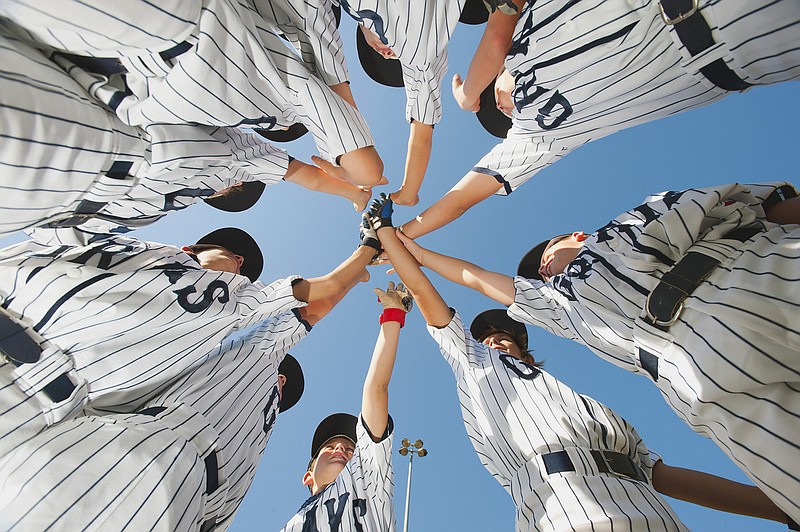Dear Mr. Dad: You've talked a lot about children and sports. Why are sports so important?
A: Children these days have it tougher than we did when we were their age. Today's youngsters live in a world where social media puts every aspect of their lives under a harsh microscope-something we and our parents and grandparents never experienced. One in three children is now overweight or obese-triple the rate it was for us-and school shootings and other violence committed by children, which was largely unheard of in our day, is startlingly common.
The question of what we can do to, quite literally, save our children (or at least improve their lives) is a popular one. But despite all the debate, one of the most effective solutions to so many of the problems that affect young people these days rarely comes up: sports.
Children who get involved in sports during middle school-and especially high school-are better off in a variety of very important ways. Compared with non-athletes, sports-involved children are less likely to be obese, smoke tobacco, or take drugs, and have better cardiovascular fitness, coordination and balance. Student athletes also get better grades and are more likely to graduate high school and go on to college; they handle stress better, have better self-esteem, and are less likely to report feeling lonely or
anxious or to become teen parents.
Sports also teaches children valuable skills in communication, cooperation, teamwork, goal setting, problem solving, learning to lose, resilience, respect for authority, controlling their emotions, patience, self-sacrifice, and more, says Graham Clark, a retired high-school football coach in Kingsport, Tenn.
Those are skills that a lot of children-particularly those who grow up in dysfunctional situations (often those in which there is no father or father figure to teach those lessons)-don't learn. Children growing up without a father or strong father figure in their life are more likely to act out in school, be expelled, abuse drugs or alcohol, and wind up in jail.
"If you ever want to see 500 young people trying to be great, come out to a high school football stadium on a Friday night," says Clark. "Between the players, the band, the cheerleader, and the dance team, there's at least 500 of them out there trying to be the best they can be."
One of the best ways to support our children's participation in sports is to encourage coaches to build personal relationships with their athletes, especially those who are coping with challenges at home. Having a coach in their corner makes a huge difference-we've all heard famous athletes talk about how getting involved in sports and being taken under the wing of a good coach helped them overcome the challenges they faced at home.
"Most of the important people in my life were called 'coach,' " says Clark, who came from a broken home and had few role models.
We also need to develop policies and procedures to ensure that children and young adults have access to sports at every level. Right now, colleges around the country, and a small but growing number of high schools, are using Title IX-which is ostensibly designed to promote equality-to cut sports programs, especially those for men and boys. They're using the concept of "proportionality," which states that percentages of male and female student athletes must be the same as the percentages of male and female students in the institution as a whole.
Nationwide, the on-campus female-to-male ratio is 57:43. However, since those percentages are roughly reversed for student athletes, institutions are resorting to cutting men's teams to produce "equity."
"With all the known positive benefits that boys gain from participating in sports, it makes absolutely no sense to cut male athletes from high school teams just to comply with Title IX's gender quota," says Eric Pearson, chairman, American Sports Council.
We'll discuss this in greater detail-and explain why it's such a dangerous development-in a future column.
(Read Armin Brott's blog at DadSoup.com, follow him on Twitter, @mrdad, or send email to [email protected].)BC-FAM-MRDAD:MCT-lifestyle (700 words)
Tribune News Service

